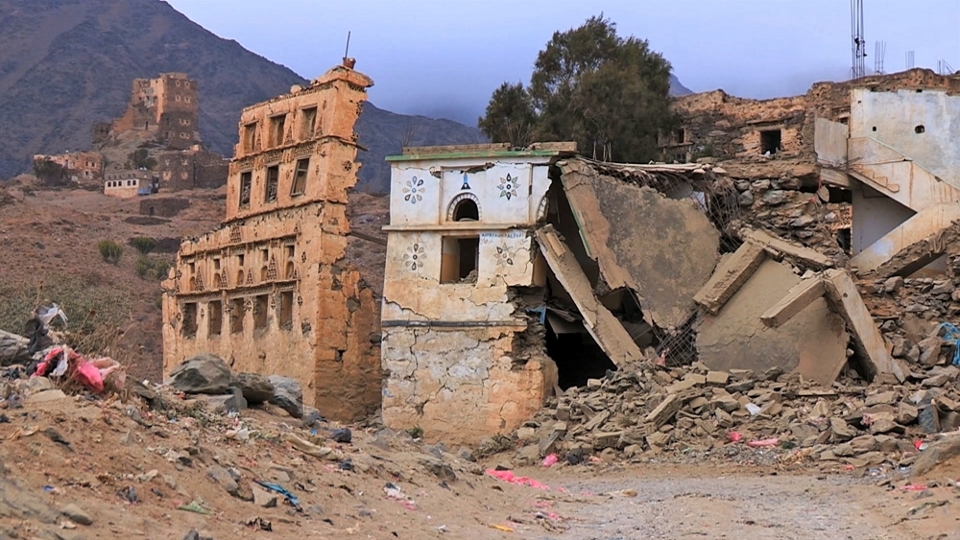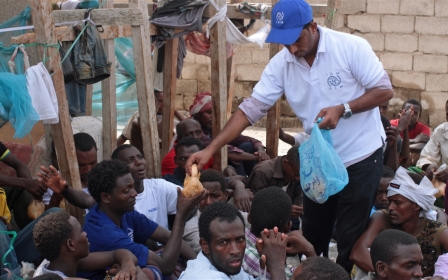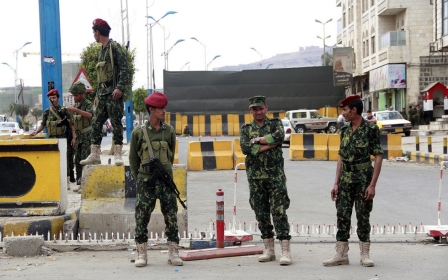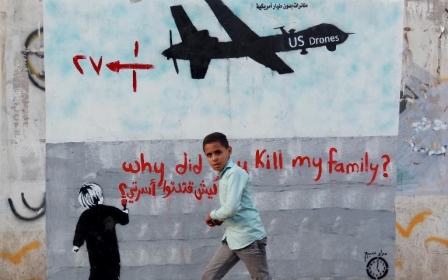The challenge of delivering aid in Yemen

By Elizabeth Blunt
Humanitarian needs in Yemen are huge, but it is also recognised as one of the most difficult places in the world for aid workers to operate in. What to do?
Yemen is the poorest country in the Middle East. It produces only 20 percent of its own food, is running out of water and has one of the highest rates of chronic child malnutrition in the world. Half the population is estimated to require humanitarian assistance. At the same time, tribal fighting in the north and a secessionist rebellion in the south have closed off large parts of the territory and driven hundreds of thousands from their homes; and Al Qaeda in the Arabian Peninsula is active, threatening the safety of foreign staff.
Local custom can also be a challenge. Yemeni men routinely carry guns, and hostage-taking is a business, adding to the level of risk that limits humanitarian access. “In Yemen a Qita – a tribal roadblock, during which the tribesmen hold a car or people hostage in exchange for a variety of demands – is often seen as non-violent and commonplace. Being threatened at gunpoint is viewed as less serious than a slap in the face,” Micheal Neuman wrote in a recent study by Medecins Sans Frontieres (MSF).
The aid community cannot simply walk away, especially since its donors are keen to support Yemen's political transition to a more democratic form of government; a chaotic process kicked off by the Arab Spring and the eventual overthrow of the corrupt 33-year rule of president Ali Abdullah Saleh.
The Humanitarian Practice Network – based in London's Overseas Development Institute – has offered some pointers on the way ahead in a special Yemen issue of its journal, 'Humanitarian Exchange'.
At a meeting in London to launch the publication, Trond Jenson, head of the UN’s Office for the Coordination of Humanitarian Affairs (OCHA) in Yemen, stressed that the political process, despite all the difficulties, was still worth supporting.
“I think the political process and the transition in Yemen has made remarkable progress,” he said. “For the first time, Yemeni youth and women have had a platform to express their vision. But that being said, the key challenge is that unless there are tangible improvements in Yemenis' daily lives, it is unlikely that they will retain confidence in the political transition process.”
At the same time, getting too involved in the transition, begun when Saleh stepped down in 2012, also holds dangers. “One of the issues that we see now is a lot of development NGOs and multi-mandate NGOs who have been overtly, consciously and strategically involved in the transition process, organising public consultations and working with community-based organisations to feed into the process. So the question becomes, ‘how is this understood by people in Yemen?’,” asked lead author of the HPN report, Steve Zyck.
“And how will it affect aid access, as some of the same agencies who are trying to provide principled, impartial humanitarian assistance have become associated with a political process that many factions find slow, unfair or otherwise objectionable.”
There is a distinct sense of the aid community in Yemen walking on eggshells, trying not to offend any group with the power to exclude them from areas of need. This has meant keeping a distance not just from Yemeni factions, but also from their own donors, a policy defended by Jenson at the London meeting.
“We have a very complex and highly politicised environment,” he said, “and I think it's very important that we as humanitarians don't take sides. One of the things that we have done is that there are no donors who are part of the Humanitarian Country Team, the body which sets the policies and strategies for Yemen … to make sure that in an environment where there is a great deal of suspicion against foreign actors, we make it absolutely clear where we are coming from – that all assistance is based on need.”
Britain’s Department of International Development (DFID's) Humanitarian Advisor in Yemen, Helen McElhinney, told IRIN they had accepted this exclusion after some discussion, taking a broad position that they would do whatever was best in the current context. But she added, “I do rather wonder how many Yemenis in Abiyan know what the UNHCT is, let alone whether DFID does or doesn't sit on it.”
But more pro-actively, some organisations are exploring new ways to deliver, despite the constraints. DFID itself has taken the decision to move away from single year programmes to multi-year humanitarian financing. Working year by year made a certain sort of sense in an uncertain and rapidly changing situation, but where finding partners and negotiating access takes time, there is a risk of the money running out just as a programme gets going. And a longer view helps both agencies and recipient communities to plan, and hopefully to build the resilience which might make them less dependent on emergency aid.
Where international agencies find their access blocked, the obvious solution is to work through local partners. But that is not so easy in Yemen, where few organisations have the capacity to deliver help on the scale needed, and fewer still can be seen as impartial. A study in the HPN journal describes how the International Organization for Migration ( IOM) – denied access to the displaced in the northern Al-Jawf governorate – effectively created its own local partner. It worked with tribal leaders in the area to set up a charitable organisation, helping it get registered and establish an office in the capital and training its staff.
Meanwhile, MSF has continued working in conflict areas, supporting government health facilities in Huth and Khamer in the north. Research by Neuman on the threats and risks to their staff and ways of managing them brings to life the reality of working in Yemen. A wounded man arrives, accompanied by an armed and agitated companion who holds a gun to the doctor's head as his friend is treated. Relatives bring in a girl with severe burns, and proceed to threaten and assault medical staff who they think are not treating her quickly enough. MSF staff are held to ransom by a family demanding compensation for the costs of taking a member to Egypt after local treatment failed.
Mistrust
As Neuman points out, these incidents – hugely stressful for the staff concerned – are not the result of Yemen's political turmoil; rather they grow out of suspicion and mistrust of medical staff and unrealistic expectations of the level of treatment which facilities in Yemen can provide. Closing clinics after incidents like these is understandable, but doesn't really help. It is seen as a collective punishment, creating further resentment.
Equally unhelpful is the informal solution adopted by stressed doctors, which is to turn away patients whose relatives they suspect might cause trouble, or refer them rapidly to hospitals elsewhere.
Neuman says that MSF has to provide more support to its staff, whose concerns for their own safety are very real. And it also has to communicate better with the surrounding community, so that people don't have unreal expectations of care, which cannot be met.
Ironically, says Neuman, the upsurge in conflict this year has been accompanied by a fall in the number of violent incidents in MSF facilities. “Perhaps,” he said, “it's because the care we provide is much more needed than it was last year, and people have less time to express any discontent, but it's interesting to see that the more violent the political situation, the safer our teams are!”
New MEE newsletter: Jerusalem Dispatch
Sign up to get the latest insights and analysis on Israel-Palestine, alongside Turkey Unpacked and other MEE newsletters
Middle East Eye delivers independent and unrivalled coverage and analysis of the Middle East, North Africa and beyond. To learn more about republishing this content and the associated fees, please fill out this form. More about MEE can be found here.




